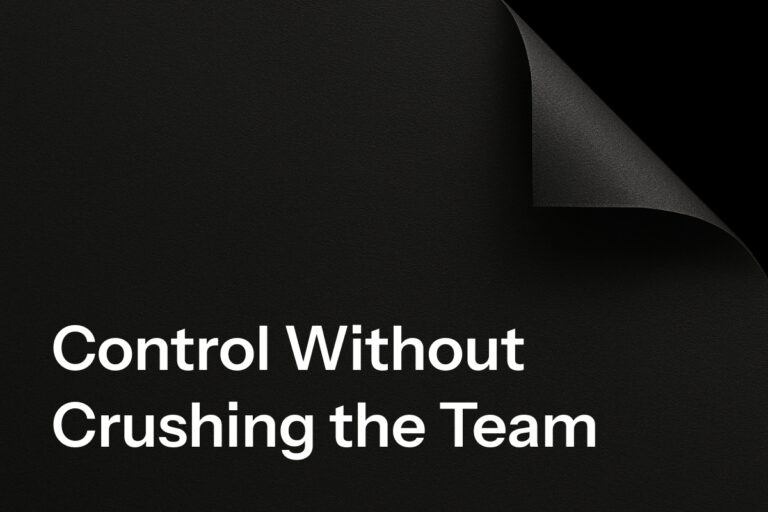Effective management is critical for company growth, streamlined operations, and optimal team performance. However, the distinction between managing and micromanaging is crucial, crossing that line can hinder productivity, morale, and overall organizational success.
Why Does Micromanaging Happen?
- Obsession with Metrics: Some managers perceive success strictly through numerical metrics, tracking hours and even minutes worked. They argue that even minimal delays or breaks accumulate significantly over time.
- Desire for Maximum Efficiency: Managers may feel compelled to ensure employees constantly maximize their productivity, viewing short breaks as wasted resources. This belief stems from a perception that downtime negatively impacts business performance.
- Fear of Change: Certain managers operate with rigid expectations and fear that even minor deviations in schedules or processes could disrupt workflows.
The Hidden Cost of Micromanaging
While the logic behind micromanaging might appear sound in theory, numbers do add up, this approach overlooks a critical component: the human factor. Behind every metric, report, or calculated outcome is an individual with emotions, motivations, and limitations.
True managerial effectiveness blends discipline with empathy, guiding teams not only through tasks but also through motivation and emotional support. Excessive oversight and continuous questioning of every action can quickly lead to employee frustration, decreased morale, and diminished productivity.
Balancing Management and Autonomy
- Empower Employees: Trust team members with responsibilities, allowing them autonomy to complete tasks effectively. Empowered employees tend to be more engaged, innovative, and motivated.
- Provide Clear Objectives, Not Constant Oversight: Setting clear expectations and measurable goals is crucial. Allowing employees to meet these goals without constant supervision fosters independence, creativity, and responsibility.
- Foster a Positive Work Environment: Creating an environment where short breaks are respected and acknowledged as beneficial can significantly improve team morale and overall productivity. Breaks enhance mental clarity, reduce stress, and increase long-term performance.
- Adapt to Human Needs: Effective managers recognize and adapt to the emotional and motivational needs of their teams. Understanding team dynamics and supporting employees emotionally contributes positively to both employee satisfaction and organizational performance.
Achieving the Ideal Management Balance
There is no exact formula for perfect management. However, striving to find the balance between oversight and autonomy is essential. Managers should continuously evaluate team dynamics, remain open to feedback, and adjust their management style accordingly to ensure a happy, motivated, and productive workplace.
Ultimately, the difference between managing and micromanaging can significantly impact a company’s growth trajectory, culture, and overall success.




